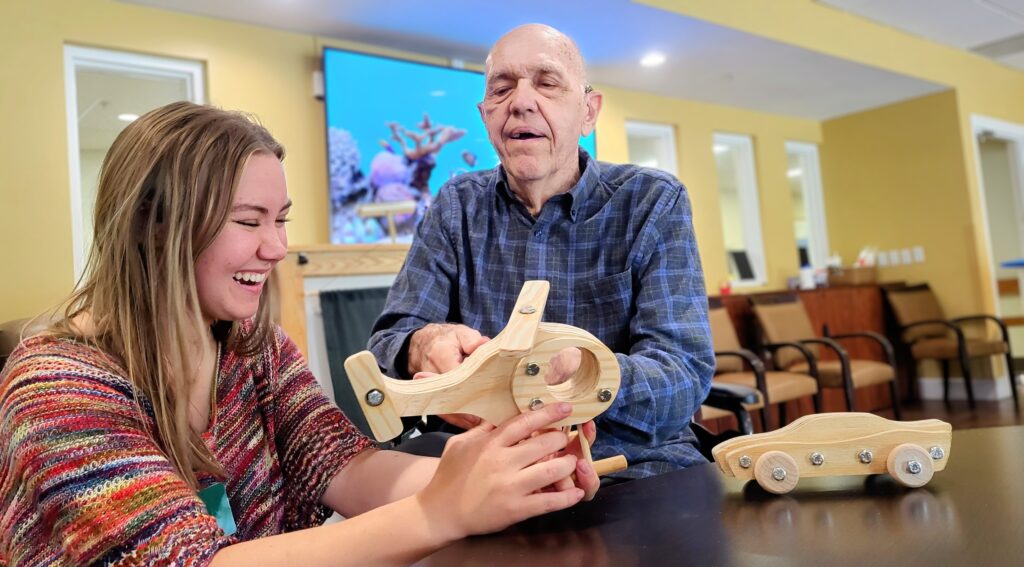
I have heard it said many times that my loved one who has dementia can’t do anything anymore. As dementia progresses, it can alter one’s ability to know how to start doing a task or what the next step is. This can cause someone to decrease participation in their own life or change the way they engage in it. What is engagement? For someone living with dementia, engagement is the active involvement, interest, and interaction between individuals in a particular topic, content, or activity. Engagement is not just about activities that fill time; engagement is often about having the right support to continue to live life in a way that brings joy.
During a recent webinar, I heard a woman living with dementia comment: “After being diagnosed with frontotemporal dementia, I was told to ‘go home and get my affairs in order.’” She described the distress she felt, stating her physician’s order was basically “prescribed disengagement” sending the message that life is now over.
“Prescribed disengagement.” As a nurse and an educator, I find that very troubling. Unfortunately, when people are given a new diagnosis of dementia, they are rarely told what the next step is. Often, they are told, “Keep doing what you are doing, and I will see you again in 6 months.” Rarely are they told how to prepare for the next steps, or how to engage with an ever-changing world around them. Support and education are rarely offered.
But providing education at this moment helps to engage the newly-diagnosed and his/her loved ones:
- what to expect as the brain changes
- how to continue to get joy and meaning in life
- how and where to get support
- how to support family and friends and help them learn what is happening in the brain
It’s important to understand that engagement, joy, and health are still important and still possible after a diagnosis of dementia. Some adaptations might need to be made from previous routines, and that’s okay. As we get older, we often make changes and different choices to what brings us joy.
Here’s an example of an adaptation. Perhaps someone living with dementia loves to bake but cannot follow a recipe or operate an oven safely on their own anymore. They can still make muffins with someone who offers the right support: they can still measure the ingredients, stir the batter, and fill the paper cups in the muffin pan.
At the Dementia Institute, we are very aware of the need all of us have, dementia or not, to engage in the world around us. We offer many services and products that focus on engagement. We also offer classes on how to communicate, what brain changes are occurring, and how to engage in life. Engagement is not just about activities. It’s about moments of true connection, joy, and feelings of value and purpose. Engagement can meet several needs at one time, such as physical, cognitive, social, and emotional needs. We can help you with that.
Our friend Ted is a carpenter who has created several wooden Connect products that are perfect for taking apart and putting together with family, friends, children, and grandchildren. Ted used his skills from his occupational therapy background and from building wooden items with his father while growing up. When his father developed dementia later in life, Ted designed a birdhouse, roadster-style car, and a helicopter which he used to stay connected with his dad. They were highly effective at promoting engagement! These Connect kits, hand-assembled with the same care, are now available for caregivers across America and around the world.
Connect kits are designed for varying skill levels to give more than moments of connection and joy; they also help with cognition and dexterity. We encourage you to consider using these tools to engage your loved ones or patients as part of a healthy routine from early diagnosis throughout the progression of brain change.
Lois J. Thomas, RN, BSN, CDP
Dementia Specialist with the Dementia Institute
For more insights, tips, and ideas for engaging loved ones or patients with dementia, you might register for the Dementia Institute’s Family & Friends Caregiver Course, or email us about custom options for your facility.